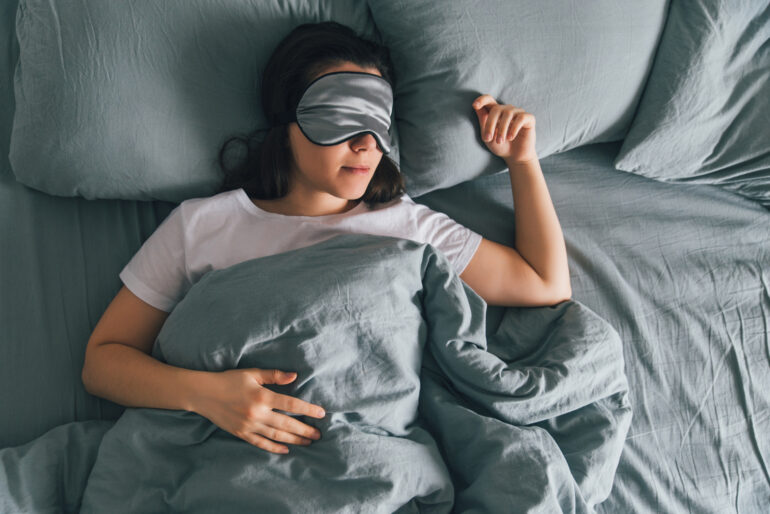Getting enough sleep is crucial for good health. But what if you’ve been making decisions about your sleep routine based on outdated information? Also, if you’ve declared 2019 your “year of sleep,” are those bedtime gadgets aimed at helping you achieve deeper sleep actually working?
In honor of National Sleep Awareness Month (March), we’re debunking some pervasive sleep myths. Hint: You may want to stop stressing if you’re not getting exactly eight hours of shut-eye each night.
Here are eight sleep myths experts say should be put to rest once and for all.
Myth: You can ‘catch up’ on sleep
It’s a common sleep habit: Burn the midnight oil during the week. Try and make up for it by sleeping more on the weekend. But, a new study from the University of Colorado found that you can’t actually “catch up” on sleep.
As part of the study, 36 adults were divided into three groups. One group got nine hours of sleep each night. One group got five hours nightly. The final group got five hours nightly and could “catch up” on sleep as much as they wanted on the weekend. Both sleep-restricted groups snacked more at night, gained weight, and saw declines in insulin sensitivity during the study, and some of the metabolic tests yielded worse results for the “weekend sleepers.”
“It could be that the yo-yoing back and forth — changing the time we eat, changing our circadian clock, and then going back to insufficient sleep — is uniquely disruptive,” says Kenneth Wright, director of the Sleep and Chronobiology Lab at CU. Catching up on sleep also proved more difficult for women, according to the study results.
Myth: A long nap will rejuvenate you
A power nap is the way to go when it comes to napping, says Bill Fish, a Certified Sleep Science coach and co-founder of sleep resource site Tuck.com. For some, that’s 20 minutes. For others, it may be 45 minutes.
The biggest rule: Keep your naps under one hour, Fish says.
“At this point, your body is expecting a full night of rest and goes into a deep sleep, and then, when you wake up, you may have the feeling of being groggy or grumpy,” he says. You should experiment with different nap times to figure out what time of day leaves you feeling most refreshed. For example, Fish says if you wake up at 6 a.m., an optimum nap time would be 1 p.m.
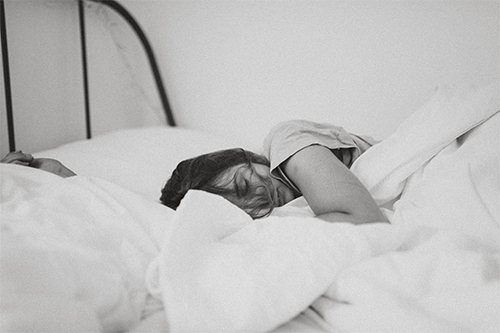
Myth: Listening to nature settings on a sound machine will help you get ZZZs
Sound machines are great — as long as you keep the setting on white noise. White noise can help mask environmental sounds and make it easier to fall asleep, says Martin Reed, a certified clinical sleep expert and the founder of Insomnia Coach. But, make sure you’re listening to white noise or pink noise, which emphasizes lower frequencies and occurs in nature, he explains.
The nature sound settings may seem relaxing, but changes in volume or unpredictable sounds can make it harder to fall asleep and even disrupt sleep during the night, says Reed, who is an affiliate member of the American Academy of Sleep Medicine.
On the hunt for a great sound machine? We swear by the Dohm, a fan-based white noise machine, as well as the travel version, the Rohm.
Myth: You should absolutely track your sleep with a sleep tracker
The emerging term orthosomnia means the obsession with perfect sleep, explains Michael Friedman, M.D., the founder and director of Chicago ENT. With so many sleep trackers available these days, people are becoming obsessed with tracking their sleep — which can be problematic, he explains.
“The anxiety associated with it creates more insomnia,” Friedman says. In fact, research published in 2017 in the Journal of Clinical Sleep Medicine found that people are self-diagnosing sleep disorders because of feedback from their sleep trackers that noted light or restless sleep.
When we become anxious about our sleep, it makes it even harder to sleep. As an example, knowing that you have to be up in four or five hours creates anxiety, which makes it difficult to sleep, Friedman says.
Myth: Everyone needs 8 hours of shuteye
Eight hours has emerged as the gold standard when it comes to sleep. But, not everyone needs eight full hours, Reed says.
“Very few of us actually need eight hours of sleep — in fact, we all require varying amounts of sleep,” Reed say. “We don’t all wear the same shoe size. So, it makes sense to consider that we don’t all need the same amount of sleep.” If you wake up feeling refreshed and are productive during the day, you are likely getting enough sleep, he says.
As a baseline, nine hours is average for kids between ages 5 and 12; seven hours of sleep is average for people age 40; six and a half hour is average for those 55 to 60; and six hours is average for an 80-year-old, according to researchers. But, again, these are averages and not hard and fast rules.
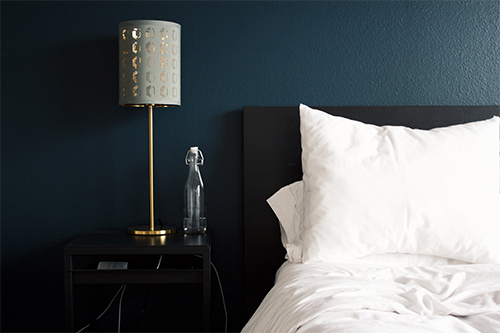
Myth: Some people only need four hours of sleep
You may have heard people boast that they only need four hours of sleep at night and wondered if that, indeed, is true. The idea that “super sleepers” exists mostly falls into the “myth category.”
“Humans need seven or more hours of sleep as recommended by the National Sleep Foundation,” says Vikas Jain, M.D., sleep medicine expert at Northwestern Medicine Central DuPage Hospital. “You may be able to offset the impact of lack of sleep with pharmaceuticals, caffeine included, however there are detrimental effects of not getting adequate sleep.” Short sleepers have been found to have a higher risk for obesity and in young children short sleep duration may affect their cognitive development, Jain says.
A possible exception? A 2018 study from the University of California San Francisco found that a “very rare” gene mutation reduces the need for sleep in some people.
Myth: Dark undereye circles are caused by a lack of sleep
Not getting enough sleep can cause all types of health and beauty problems — increasing your risk for diabetes, weakening your immune system, and causing your skin to prematurely wrinkle. But, one thing you can’t blame a lack of sleep for is dark undereye circles, says Elma Baron, M.D., a dermatologist who is on Mattress Advisor’s advisory board.
There’s no data to prove that lack of sleep is causing those pesky dark circles. Rather, Baron says, the dark circles are likely caused by other factors such as genetics or allergies.
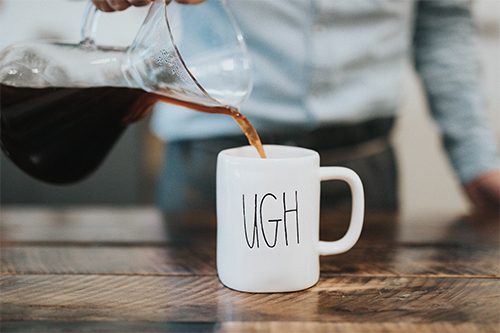
Myth: Not getting enough sleep one night can’t actually hurt you
Actually, a new study found that after one night of inadequate sleep, your brain activity increases in the regions of your brain responsible for sensing pain. What makes this even worse is that activity is scaled back in other areas of the brain that are responsible for controlling how we perceive pain. The January 2019 study was published in the academic journal JNeurosci and provided the first brain-based explanation for the relationship between pain and sleep. The takeaway: not getting enough can very literally hurt you the next day!
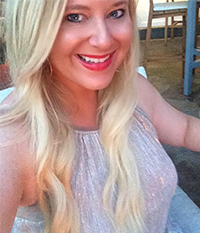 Brittany Anas is a freelance writer who specializes in health, fitness, and travel writing. She also contributes to Men’s Journal, Women’s Health, Trip Savvy, Simplemost, Orbitz, and Eat This, Not That! She spent a decade working at daily newspapers, including The Denver Post and the Daily Camera in Boulder, Colorado, and she is a former federal background investigator. In her free time, Brittany enjoys hiking with her gremlin-pot belly pig mix that the rescue described as a “Boston Terrier” and coaching youth basketball. She also works with domestic abuse survivors, helping them regain financial stability through career coaching. Follower her on Twitter and Instagram.
Brittany Anas is a freelance writer who specializes in health, fitness, and travel writing. She also contributes to Men’s Journal, Women’s Health, Trip Savvy, Simplemost, Orbitz, and Eat This, Not That! She spent a decade working at daily newspapers, including The Denver Post and the Daily Camera in Boulder, Colorado, and she is a former federal background investigator. In her free time, Brittany enjoys hiking with her gremlin-pot belly pig mix that the rescue described as a “Boston Terrier” and coaching youth basketball. She also works with domestic abuse survivors, helping them regain financial stability through career coaching. Follower her on Twitter and Instagram.
